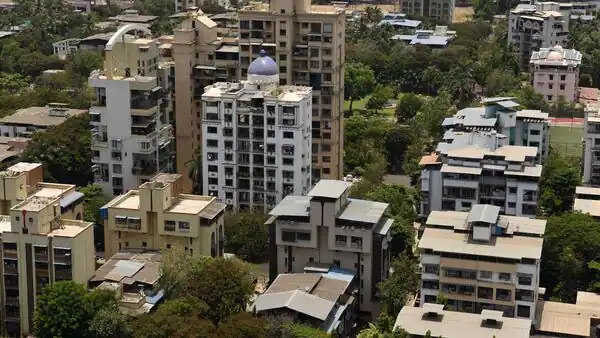In the aftermath of the pandemic, NRIs have emerged as a vital driving force behind premium real estate sales, accounting for a remarkable 20% of all transactions
Out of the 281 million global migrants, around 18 million hail from India, as per the United Nations’ estimates. This diaspora is now at a unique juncture, as the deep-rooted ties of heritage and lineage draw them back to their ancestral land, notes a report by asiapropertyawards.com.
The 1990s marked a significant turning point with economic reforms that led to the liberalization of foreign exchange and investment regulations in India. These changes dismantled the obstacles that non-resident Indians (NRIs) had previously encountered while attempting to invest in Indian real estate. More recently, the Real Estate (Regulation and Development) Act, 2016 (RERA) has brought about heightened transparency and accountability to the sector, benefiting both domestic and NRI buyers.
In the aftermath of the pandemic, NRIs have emerged as a vital driving force behind premium real estate sales, accounting for a remarkable 20% of all transactions, more than doubling their previous contribution. A notable portion of these buyers are high net-worth individuals (HNWIs), many of whom are NRIs. A survey conducted by India Sotheby’s International Realty indicates that a significant number of these HNWIs, mainly NRIs, are planning to invest in luxury real estate within the next two years.
The prevailing market conditions are widely perceived as highly favorable for international investors, especially within the upscale segments of the market. The allure of financial pragmatism combined with the potential for substantial returns serves as a compelling incentive, particularly with the current strength of the US dollar against the Indian rupee.
Keval Valambhia, the Chief Operating Officer of CREDAI MCHI, a prominent real estate association, explains that global NRIs are leveraging the economic stability of regions like the Gulf Cooperation Council countries, the US, and the UK to channel resources into India. The majority of NRI investors are still drawn from these areas, along with Australia, Canada, and Southeast Asia.
For NRIs, various markets across India hold distinct appeal. Major metropolitan areas such as Delhi-NCR, Hyderabad, and Bengaluru remain at the forefront. A joint survey by property consultancy firm Anarock and the Confederation of Indian Industry highlights that 60% of respondents are considering investments in these cities.
-
Despite potential challenges, the overarching sentiment is clear: NRI investment is a catalyst for positive change
-
Experts underline the necessity for ongoing reforms, heightened transparency, streamlined regulatory processes, and supportive policies to continually attract and retain NRI investments
Second-tier cities are also gaining traction due to more affordable property prices and the potential for higher returns as urbanization and development continue. Coastal states like Goa, Kerala, and Tamil Nadu are witnessing increased demand from those seeking rental income, vacation homes, and retirement properties.
The surge in NRI investment post-pandemic is further fueled by technology playing an instrumental role in simplifying property transactions. The acceleration of virtual and augmented reality-driven virtual tours during lockdowns has made property search and purchase more convenient for overseas buyers.
Moreover, AI-powered algorithms have significantly improved data-based property valuation and market analysis. Secure long-distance transaction technology has fostered greater trust and convenience in remote financial transactions and document management.
In 2020, India attained the status of the world’s largest real-time payment market, registering 25.5 billion annual transactions. The Unified Payment Interface, a smartphone-based instant fund transfer system, has established connections with major NRI hubs such as Singapore, the US, Australia, Canada, Hong Kong, Oman, Qatar, Saudi Arabia, UAE, and the UK.
However, beyond the economic factors, there exists an emotional undercurrent. The dream of owning a piece of their homeland remains a pivotal influence in the decision-making process for NRIs. Many prefer properties in their native states due to familial ties.
Despite potential challenges, the overarching sentiment is clear: NRI investment is a catalyst for positive change. Experts underline the necessity for ongoing reforms, heightened transparency, streamlined regulatory processes, and supportive policies to continually attract and retain NRI investments.
*****************************************************
Readers
These are extraordinary times. All of us have to rely on high-impact, trustworthy journalism. And this is especially true of the Indian Diaspora. Members of the Indian community overseas cannot be fed with inaccurate news.
Pravasi Samwad is a venture that has no shareholders. It is the result of an impassioned initiative of a handful of Indian journalists spread around the world. We have taken the small step forward with the pledge to provide news with accuracy, free from political and commercial influence. Our aim is to keep you, our readers, informed about developments at ‘home’ and across the world that affect you.
Please help us to keep our journalism independent and free.
In these difficult times, to run a news website requires finances. While every contribution, big or small, will makes a difference, we request our readers to put us in touch with advertisers worldwide. It will be a great help.
For more information: pravasisamwad00@gmail.com



